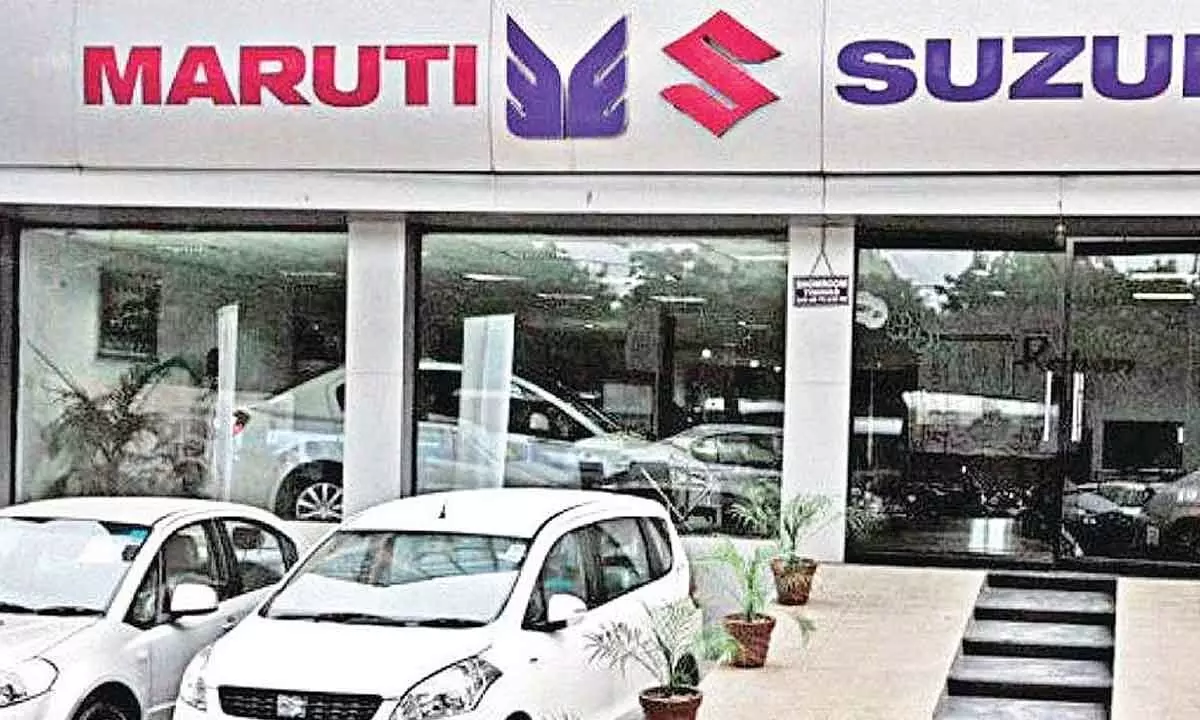Maruti Suzuki looks to deploy strong hybrid tech across model range
The auto major aims to have eco-friendly tech elements in each of its models, enabling better fuel efficiency and reduced carbon footprint
image for illustrative purpose

New Delhi: Betting big on green technologies, Maruti Suzuki India (MSI) plans to have strong hybrid technology across its model range in the next 5-7 years, as per a senior company official.
The auto major aims to have strong and mild hybrid technologies as part of an initiative to have environment-friendly technology elements in each of its models, enabling better fuel efficiency and reduced carbon footprint. Battery electric vehicles, CNG cars and greater focus on ethanol and bio-CNG compliant engines would also be prioritised going ahead. "In the next five to seven years, every model will have some element (of green technology) or the other.
There will be no pure petrol powertrain across the range," MSI Chief Technical Officer C V Raman told PTI in an interaction. He noted that the company is particularly looking to have strong hybrid technology across multiple models going ahead. "We will definitely look at that option," Raman said when asked if all models would be candidates for strong self-charging hybrid powertrains. "When we come up with a technology, we try to democratise it by putting it across as many models as possible," he stated.
The company's upcoming mid-sized SUV is going to have a strong hybrid system. MSI is slated to unveil the model later this month. It already offers mild hybrid technology across various models in its portfolio. Hybrid cars combine the advantages of gasoline engines and electric motors. A mild hybrid system offers only miniscule benefits, while the strong hybrid mechanism, which entails bigger battery and related aggregates, offers considerable jump in fuel efficiency and thus reduction in carbon footprint.
Raman noted that currently in the absence of adequate charging infrastructure in the country, hybrid technology is the best way forward in the transition phase towards pure battery electric vehicles. The self-charging hybrid mechanism not only offers reduction in CO2 emissions and enhanced fuel efficiency, but also takes care of range anxiety issues for buyers, he stated. "It (hybrid technology) should be given its due (in terms of taxation)," Raman said when asked if hybrid vehicles should also get the taxation benefits being enjoyed by battery electric vehicles (EVs).
The total tax incidence on hybrid vehicles in the country is 43 per cent, while battery electric vehicles attract a tax of about 5 per cent. Raman noted that all kinds of steps are required to achieve the targets set under the COP26 climate change conference. "Strong hybrid is going to take care of some part of it...I think it is the perfect solution for helping in running the car in an eco-friendly manner," he said. "Why this eco-friendly transition is not an acceptable solution is something which people should talk about."

